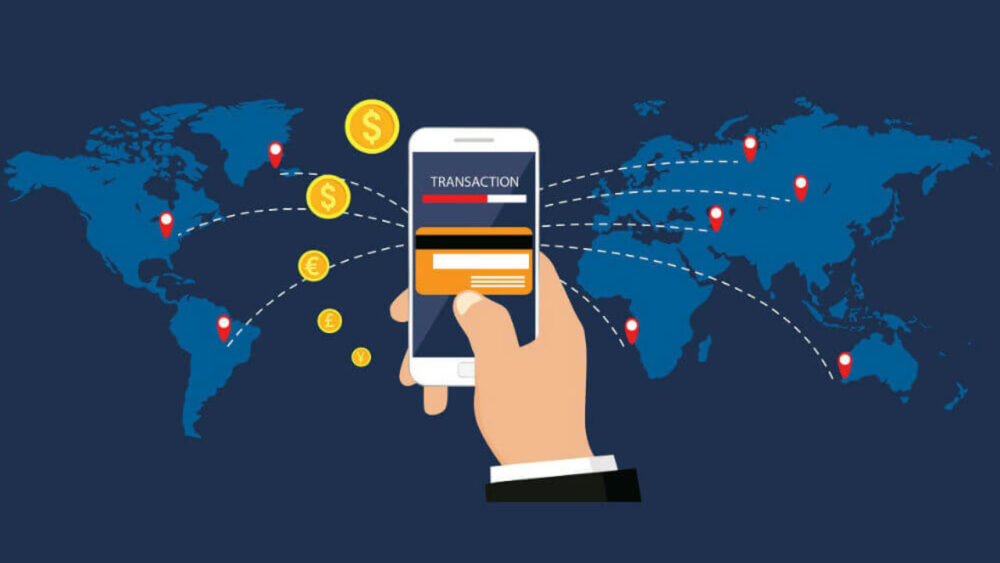Industries that will be disrupted by blockchain technology
Since blockchain technology was first introduced, it has changed the face of various sectors across the world. However, many believe that this is just the beginning, with bigger changes coming in the near future. What else is to come? Join us as we dive deep into five industries likely to be disrupted by blockchain technology.
What is Blockchain Technology?

Source: iimtindia.net
Blockchain technology is a public digital ledger that keeps track of various transactions. A majority of these transactions are peer-to-peer, but have also been incorporated by businesses worldwide. It is most commonly associated with cryptocurrencies, where some of these digital assets have their own blockchain.
Each transaction is represented by an ID, which appears as a group of letters and numbers. This can then be searched through an explorer, such as Blockchair, for users to gather more information about the transaction, if and when needed.
Why online companies need to start using the technology
Blockchain technology will be of great benefit to both consumers and businesses when looking at aspects such as secure online payments, which will expand the consumer base within any online industry. It will also push crypto and blockchain technology forward and result in more companies coming up with solutions on how this can be improved, implemented and further adapted to new areas.
There is already a lot happening in this area, which is positive, but a challenge for online companies will be to keep up with the technological advances made in the blockchain space, otherwise they are at great risk of becoming redundant. In a blog post by PartyCasino, examples of this can be shown, of companies that were ahead of their time in both software, hardware and online solutions, but failed to adapt to consumer needs and competitors’ movements on the market. .
Examples of industries that will benefit from the technology
Below is a list of industries and areas that will see a significant change due to technology in the coming years.
1. Retail trade

Source: forbes.com
Blockchain technology could eliminate the need for receipts in the retail world. Employees will no longer ask for an email address, which can be used for the all-too-familiar messages. Users can simply pay and check the transaction later, from any device with an internet connection.
This technology also ensures that payments can be made worldwide, without the need for large fees. Most banks will charge 1-3% for each transaction made in foreign currency. By spending funds on a blockchain, this can be reduced to 0.001% and lower. In the blockchain world, these are known as “gas fees” and will vary depending on the chain used.
2. 3D printing

Source: forbes.com
Since it is also a relatively new and innovative phenomenon, it is no surprise that blockchain technology can help with 3D printing. One of the biggest discussions, in this case, is to streamline the production of essential parts and pieces. Using a third-party application, all 3D printing processes can be tracked and stored in a public location. This can be verified and checked immediately, without this information being tampered with.
3. Security

Source: unsplash.com
Perhaps one of the biggest draws of blockchain technology is the ability for people to take control of their money. This is also true with cryptocurrency, with many investors believing that owning your own currency, digital or not, is the key to securing your finances.
If you use a cryptocurrency, users can really have full control over their money. Of course, this is good news for those who know a lot about security. Devices such as cold wallets have also been created, allowing users to keep a whole range of digital assets on something the size of a USB stick.
These cold wallets, often called ledgers, can only be activated by trusted entities or someone who knows the “seed phrase” (which is also often referred to as a “recovery phrase”). This phrase will consist of various random words, which will be detailed when you set up the device.
Users must note this phrase and keep it in a safe and secure place for reference when they want to move funds. It is strongly recommended that this be kept offline to deter hackers. Of course, this method is not 100% secure, but many studies have claimed that using a ledger is the safest place to store digital funds.
4. Loans and lending

Source: unsplash.com
There are many loan and lending companies that operate on the blockchain. Decentralized and centralized loans are both available, depending on the user’s preferences. In both cases, crypto-assets are used as collateral against the funds being lent. Moreover, in many cases the loan will be based on the current value of the cryptocurrency used as collateral. Many choose to use stablecoins, such as USDT, precisely for this reason.
Centralized loans are controlled by the company offering the loan. They will check all the security before distributing it back if the payments are met. On the other hand are decentralized options. These are based on a smart contract, which can take funds automatically if repayments are not made.
In almost all cases, the financial history of a potential customer will be checked, either through a traditional credit score or on the blockchain itself. This can help the company to determine the potential risk of a loan, so that they can make the necessary changes to the agreement if necessary.
5. Banking operations

Source: cyberium.info
Since the introduction of blockchain technology, it is not necessary to use a bank account to transfer money. There are a number of apps that can do this without having to connect a registered bank account. This makes peer-to-peer transfers even easier, with the only requirement being the wallet address of the recipient!
There are a handful of apps, including the likes of Request Finance, that allow other banking functions to be performed on the blockchain. Funds can be applied for, for example, for work that has been carried out previously. There are also other apps for recurring payments, which are almost identical to the direct debit payments often used for memberships and bills.
Finally, tips can also be accepted universally on the blockchain. This is perfect for anyone creating content online, including YouTubers and Twitch streamers. While this may sound niche, both of these platforms have seen relentless growth, with over 300 million new members in 2021 alone.
Conclusion
That concludes this article on the industries likely to be disrupted by blockchain technology in the future. As most people might expect, this list is just a small glimpse into the potential that blockchain holds. Some industries have already adapted to this innovative technology, while others may take a little extra time to follow.



